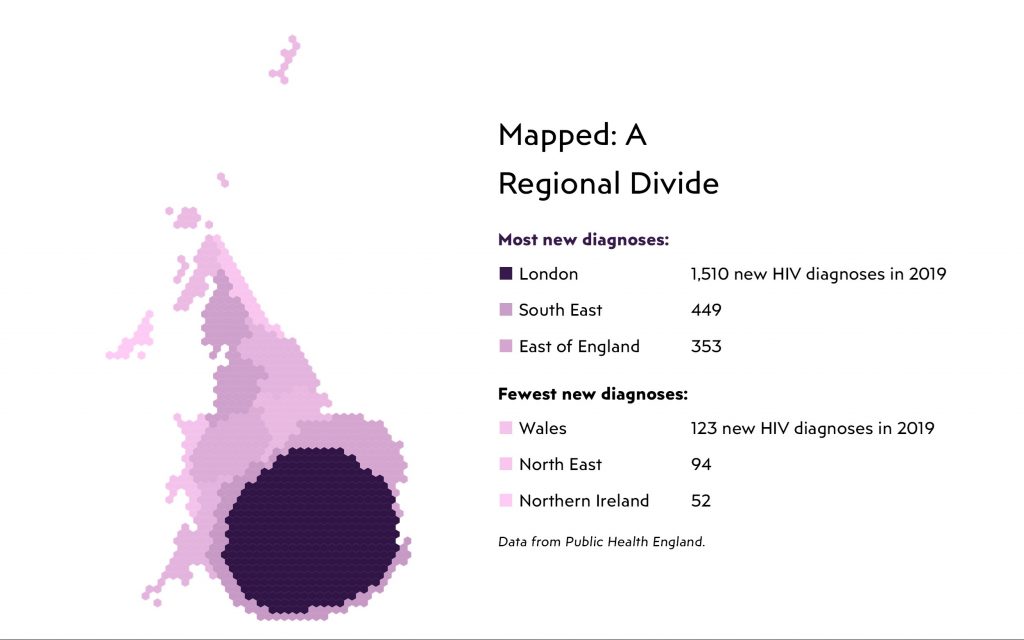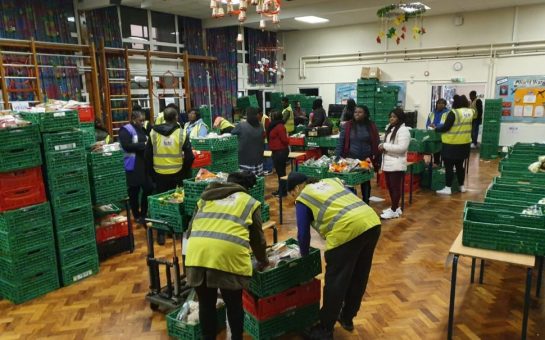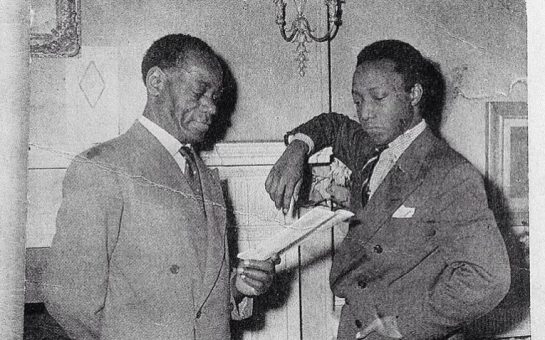World AIDS Day gave us reasons to be positive yesterday as the latest statistics show HIV diagnoses have fallen by almost 60% among London’s gay and bisexual men since 2015.
Meet Jason Domino, a London-based sexual activist and sex worker whose campaigns are shaping the future, and the end, of HIV transmission in the UK.
Domino’s aim is to get people talking about sexual health, reducing harm by fostering confident conversations about enjoying sex safely.
From protesting in Soho, to speaking at the United Nations in Geneva, to releasing a pornographic documentary to explore preventative medication for HIV, Domino’s conversation is being heard far and wide.

And his hard work is paying off: the preventative medication for HIV, known as PrEP, was made feely available on the NHS in England last October.
The fight against the disease is also progressing in London, where HIV diagnoses are falling, and on World AIDS Day yesterday, the UK Government committed to ending all new HIV diagnoses by 2030.
Domino said: “We’re at a point where we are making a lot of scaffolding for great progress. People are having the first parts of conversations where we are able to break down age-old stigmas towards HIV.”
But his work does not stop here.
He added: “There are still parts of the community that are really far away from the most progress.
“It’s really exciting that new diagnoses are falling, but the hardest work tends to be at the latter stages of this process, reaching out to harder-to-reach parts of the community.”
This is Domino’s focus for the next decade: to reach out to margins within margins.
HIV still disproportionately affects men who have sex with men (MSM) and Black African people living in the UK.
Within these groups, Domino focuses on reaching out to sex workers in particular.
He said: “There is no way of reaching zero transmissions without the decriminalisation of sex work.
“We need to look at all of the tools that we know are effective and one of the main tools that we have in that arsenal is called DasP: Decriminalisation as Prevention.
“That’s decriminalisation of sex work, decriminalisation of HIV, and decriminalisation of drugs.
“These are harm-reductionist approaches meaning that more people are accessing care.
“We can’t skip around these just because it’s easier to talk about PrEP: we need policy changes.”
The headline for UK government policy on World AIDS Day yesterday was its target to end all new HIV diagnoses by 2030.
Health Secretary Matt Hancock promised an action plan which will arrive early next year to fight against HIV, with London one of the worst affected areas.
However, the measures were made against a positive backdrop as a government report last month found that the number of positive HIV tests taken in London fell by more than 50% between 2014 and 2019 – from 1,402 to 659.
Between 2018 and 2019, the number of tests among Black African men increased while positive HIV test results were lower.

Data from Public Health England
Lockdown may have helped this positive trend along, particularly amongst gay and bisexual men.
The famous 56 Dean Street clinic in Westminster ran a “time to test” campaign during the lockdown when it was thought HIV transmission rates would plummet.
HIV specialist Dr Alan McOwan said at the time that it was a unique opportunity to work towards eradicating HIV.
“If we all act now and we all order an HIV test, we can clear HIV from our community so when lockdown ends, there’s very little HIV left,” he added.
Dr Sanjay Bhagani, an infectious diseases consultant, told SW Londoner that these figures tell a story of “amazing achievement”.
He said: “Testing, effective and simple treatment, PrEP, amazing advocacy and peer support have all played a role.
“We hope we will reach zero transmissions soon with joined up care for sexually transmitted infections.”
The London Borough of Lambeth shares this aim, its openly HIV+ mayor said yesterday.
Mayor Philip Normal said: “Lambeth will be at the forefront of better testing, treatment, PrEP provision and the fight to end HIV-stigma.
“World AIDS Day is an opportunity to remember those we have lost to the HIV pandemic.
“In honouring their memory, we redouble our efforts in Lambeth to stop the spread of the virus and to ensure that everyone living with HIV are not just accepted in society, but celebrated.”
Feature image: SW Londoner Montage/Royal Free London/Lambeth Council




